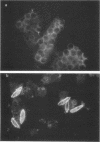Abstract
The strain diversity in Plasmodium falciparum has been studied with respect to gamete surface antigens which are the targets of transmission-blocking antibodies. Of 12 isolates tested, 11 were positive by immunofluorescence with the three monoclonal antibodies studied. The exception was a Liberian isolate, two clones of which were found to react with only one of the three monoclonal antibodies. Antibodies IIC5-B10 and IA3-B8, which previously have been shown to act synergistically to block infectivity of 7G8, a Brazilian clone of P. falciparum, acted in an exactly similar way with another Brazilian isolate, It.D12, and an isolate from Thailand. In the presence of complement either IA3-B8 or a third antibody, IID2-A10, strongly suppressed infectivity of It.D12 as well as 7G8, but neither isolate was strongly suppressed by IIC5-B10. IA3-B8 and IID2-A10 did not react by immunofluorescence or immunoprecipitation with gametes of L.E5; IIC5-B10 reacted positively with L.E5 gametes in these tests. In the absence of complement, the combination of IA3-B8 and IIC5-B10 did not suppress infectivity of L.E5 to mosquitoes. In contrast to its effect on gametocytes of other isolates, IIC5-B10 in the presence of complement strongly suppressed infectivity of L.E5 to mosquitoes. These results imply that IA3-B8 and IIC5-B10 react with two structurally distinct epitopes on the surface of gametes of P. falciparum and that the properties of both epitopes on gametes of L.E5 differ from those on gametes of the other isolates tested.
Full text
PDF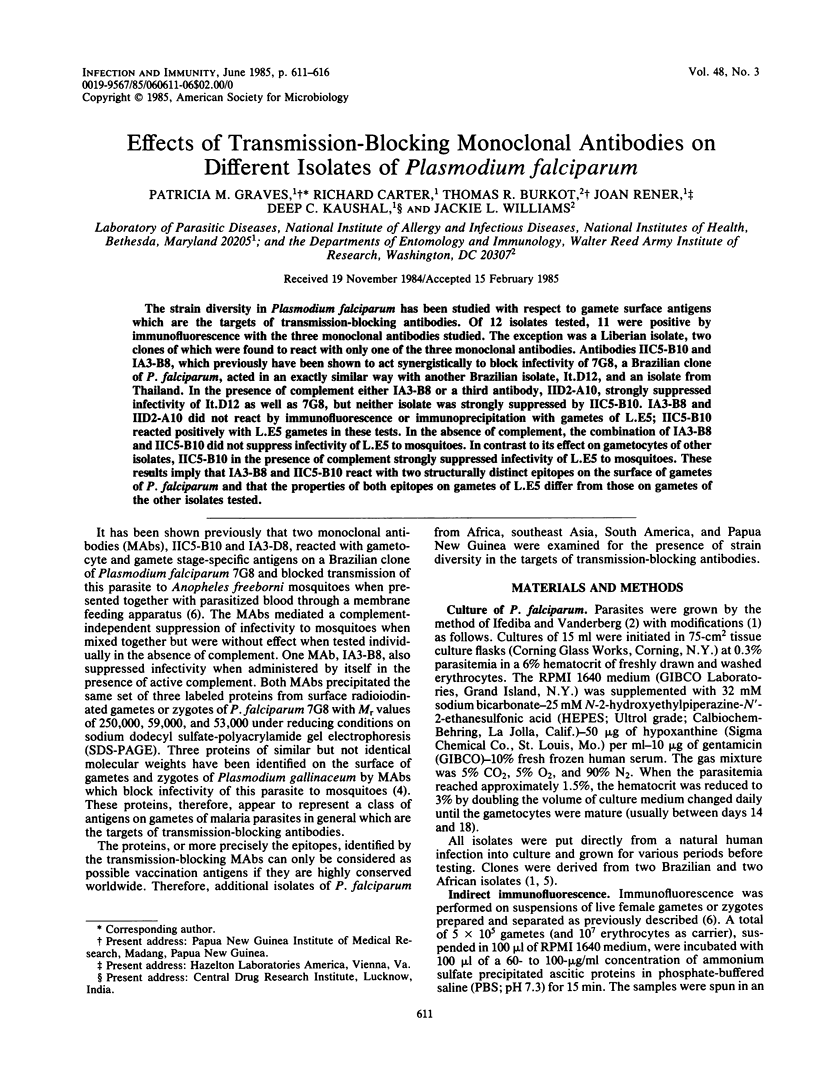
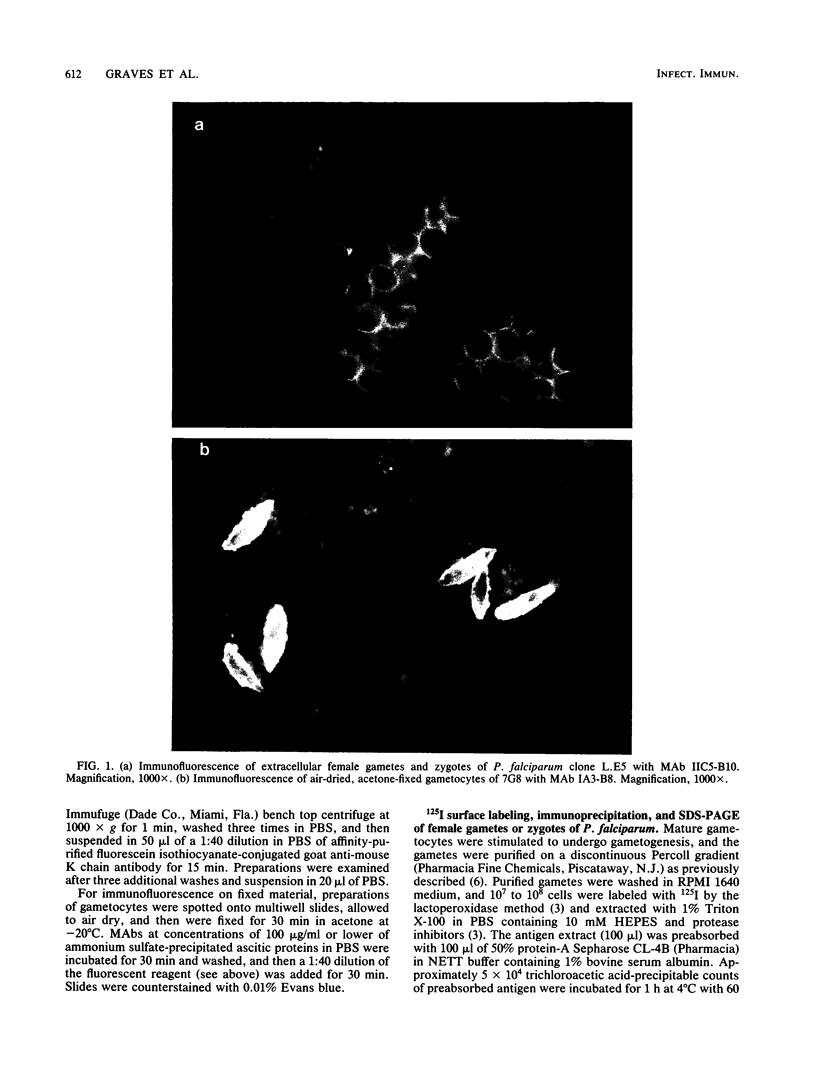
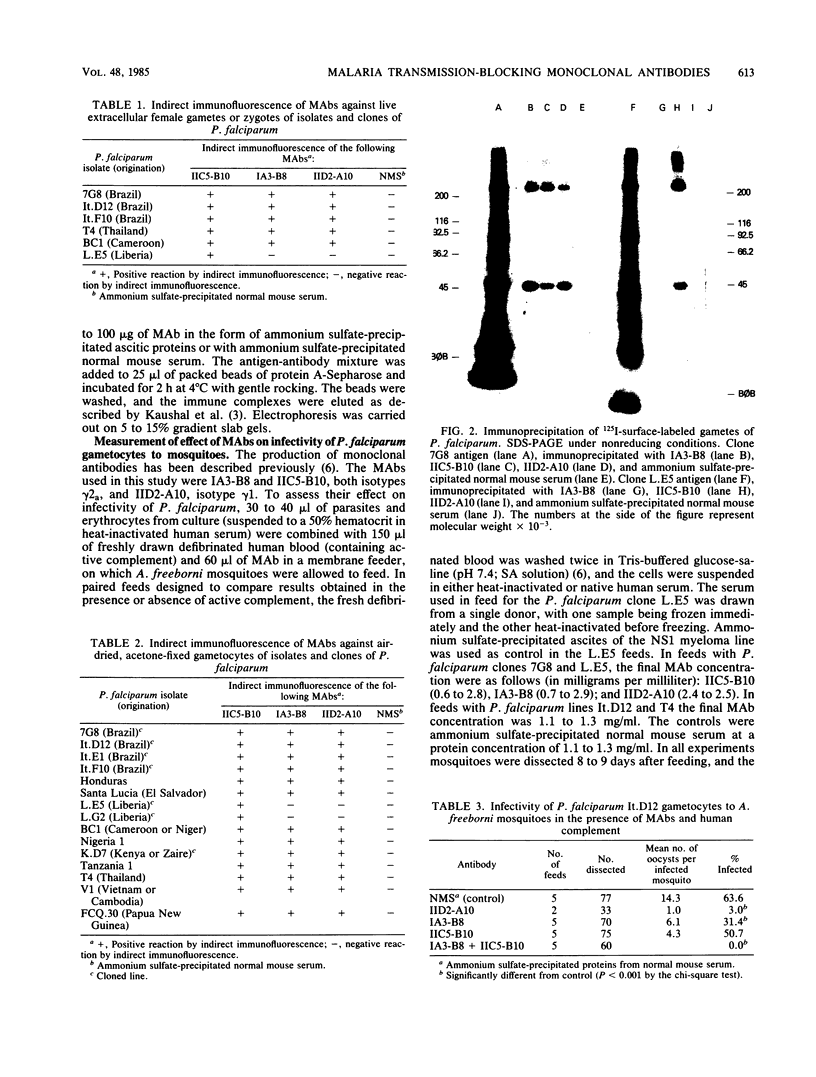
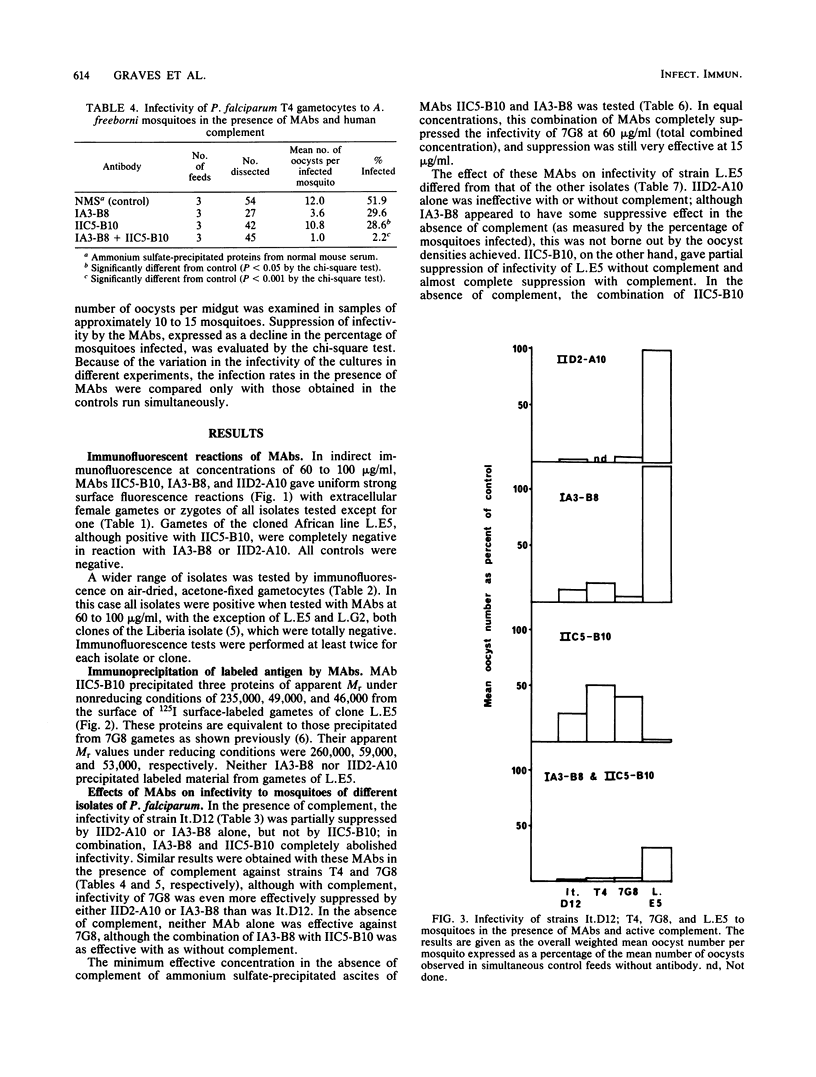
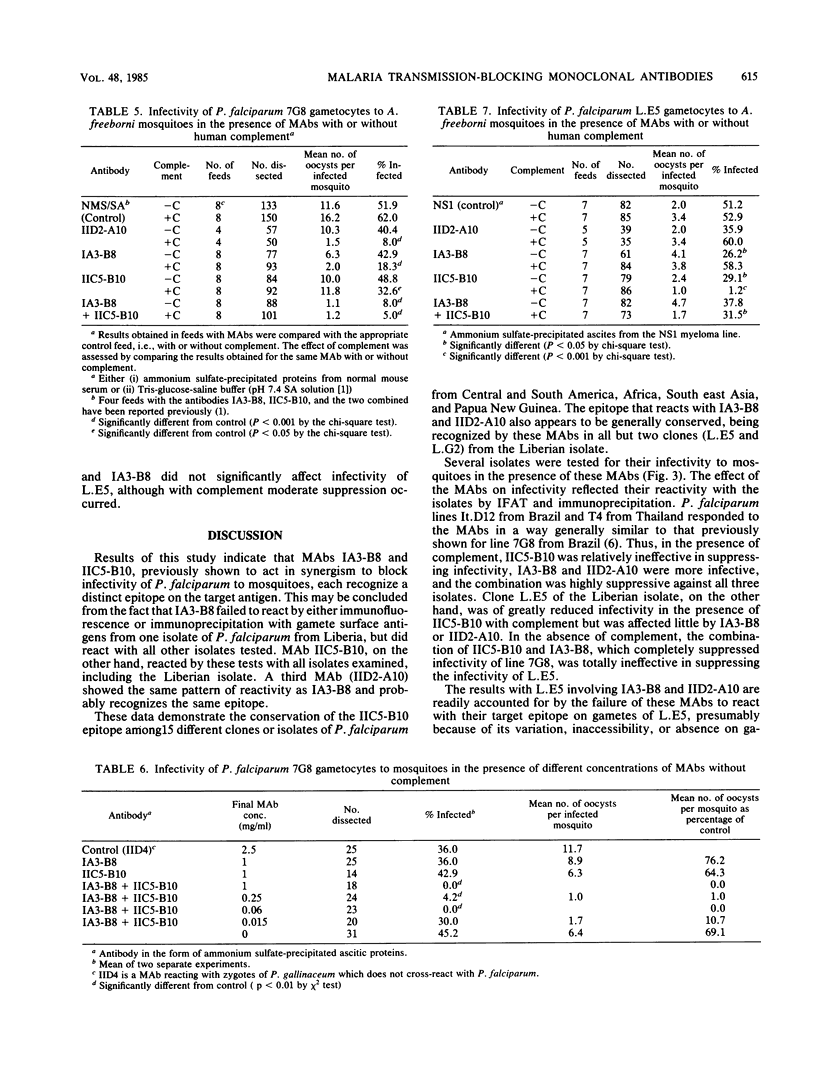
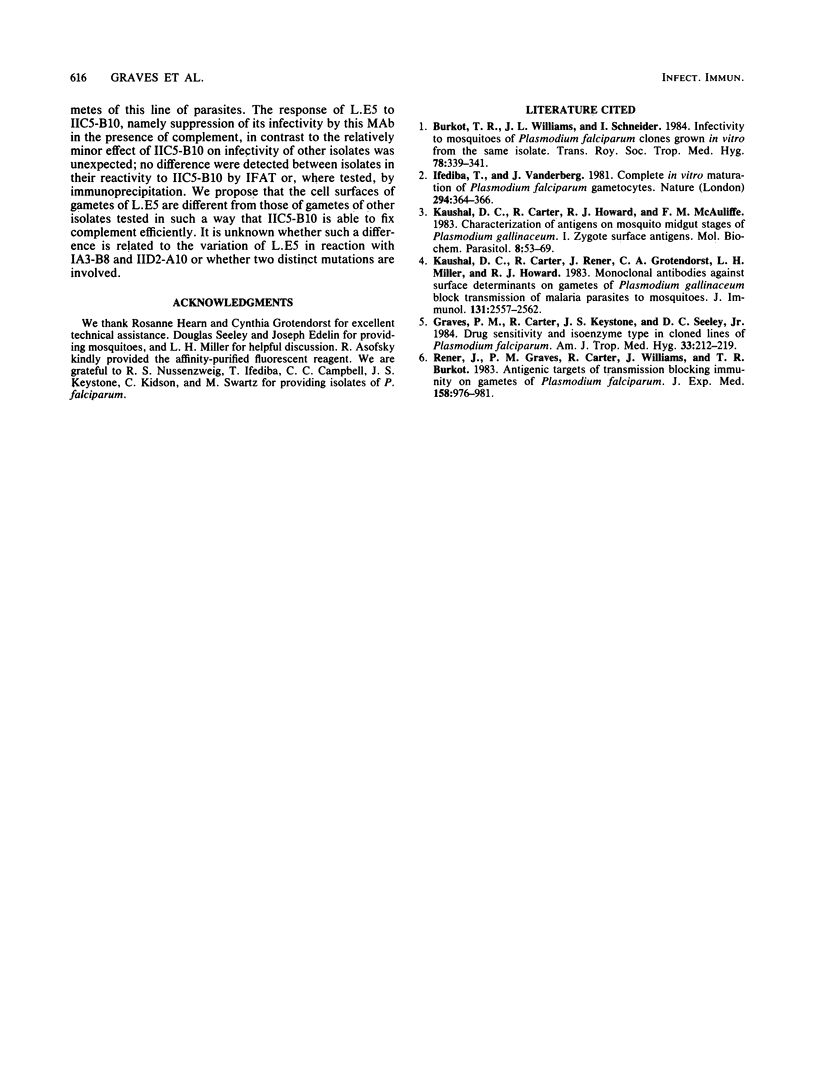
Images in this article
Selected References
These references are in PubMed. This may not be the complete list of references from this article.
- Burkot T. R., Williams J. L., Schneider I. Infectivity to mosquitoes of Plasmodium falciparum clones grown in vitro from the same isolate. Trans R Soc Trop Med Hyg. 1984;78(3):339–341. doi: 10.1016/0035-9203(84)90114-7. [DOI] [PubMed] [Google Scholar]
- Graves P. M., Carter R., Keystone J. S., Seeley D. C., Jr Drug sensitivity and isoenzyme type in cloned lines of Plasmodium falciparum. Am J Trop Med Hyg. 1984 Mar;33(2):212–219. doi: 10.4269/ajtmh.1984.33.212. [DOI] [PubMed] [Google Scholar]
- Ifediba T., Vanderberg J. P. Complete in vitro maturation of Plasmodium falciparum gametocytes. Nature. 1981 Nov 26;294(5839):364–366. doi: 10.1038/294364a0. [DOI] [PubMed] [Google Scholar]
- Kaushal D. C., Carter R., Howard R. J., McAuliffe F. M. Characterization of antigens on mosquito midgut stages of Plasmodium gallinaceum. I. Zygote surface antigens. Mol Biochem Parasitol. 1983 May;8(1):53–69. doi: 10.1016/0166-6851(83)90034-8. [DOI] [PubMed] [Google Scholar]
- Kaushal D. C., Carter R., Rener J., Grotendorst C. A., Miller L. H., Howard R. J. Monoclonal antibodies against surface determinants on gametes of Plasmodium gallinaceum block transmission of malaria parasites to mosquitoes. J Immunol. 1983 Nov;131(5):2557–2562. [PubMed] [Google Scholar]
- Rener J., Graves P. M., Carter R., Williams J. L., Burkot T. R. Target antigens of transmission-blocking immunity on gametes of plasmodium falciparum. J Exp Med. 1983 Sep 1;158(3):976–981. doi: 10.1084/jem.158.3.976. [DOI] [PMC free article] [PubMed] [Google Scholar]



